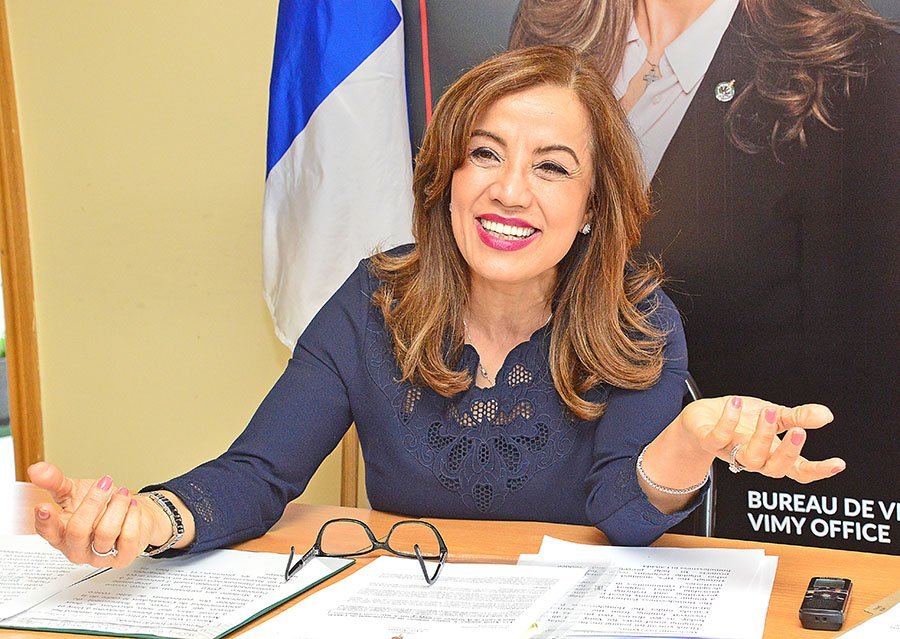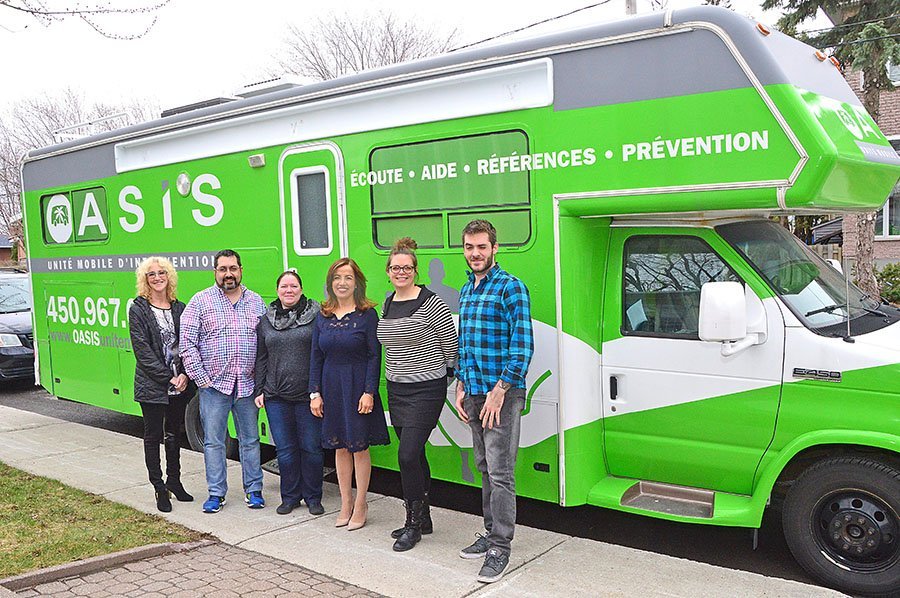
Martin C. Barry
Vimy Liberal MP Eva Nassif has announced the federal government’s support for the fight against homelessness in Laval through increased financial assistance to two local organizations: Maison Dominique and the Oasis Mobile Intervention Unit.
Fighting homelessness
“Funding initiatives like the HPS help communities develop and deliver important tools and services, a crucial part of the fight against homelessness and poverty,” Nassif said during a press conference held at Maison Dominique in Laval-des-Rapides last week. “I am proud that these two organizations continue their remarkable and essential work and that, one step at a time, they bring comfort and safety to those in need.”
Maison Dominique, whose mission is to provide stability, dignity and security to people at risk of homelessness, was awarded a subsidy of $36,993. Oasis Mobile Intervention Unit, providing on-the-ground intervention and services on the streets of Laval with a mobile unit since 1995, received a subsidy of $33,940.
According to Nassif, the two organizations will be able to continue their efforts to reduce homelessness in Laval and offer unequaled support to people in need. “Homeless is a serious problem and should be treated as such,” she said.

Support for the vulnerable
“Whenever someone is undergoing a crisis, it is always the devotion of those working for organizations like Oasis Mobile Intervention Unit and Maison Dominique who are there to support our most vulnerable people. This financial support will help them to deliver their services in Vimy and to make the area more inclusive and a better place to live.”
According to the Maison Dominique’s web site, they offer a home environment to homeless individuals afflicted with HIV on a short and long term basis. “Our approach takes into account the individual in his or her globality and places the emphasis on their potentiality and not their limitations,” they say. “We believe that each of us is entitled to respect, dignity and support without regard to social or serological status.”
Helping those in dire need
In a mission statement on the Oasis Mobile Intervention web site, Oasis says the group exists to offer “front line” intervention to persons in Laval 12 years of age and older who are in dire need by listening, referring and preventing.
“We meet people who are in need directly in their environment. Our organization sets out to meet people who are marginalized and who are often not served by other resources. Oasis seeks to establish decisive and significant relationships with its clients with the goal of providing them with concrete and immediate assistance.”
Resources lacking
Following Nassif’s announcement, representatives of the two groups took part in an exchange with her on various issues that affect them. “It’s very difficult to help someone out of homelessness when they can’t find a place to live,” said one, complaining that Laval has almost no available social housing where homeless persons might be placed.
“The biggest challenge we are facing now is finding housing to get people out of poverty and homelessness,” she said. While another complained that the federal government did little or nothing for decades to provide support for social housing, the current Liberal government has launched some new initiatives since 2015 when they came to power.
Federal aid available
Among other things, the government launched the Surplus Federal Real Property for Homelessness Initiative, which makes surplus federal real-estate available to communities for projects that help stabilize the living arrangements of homeless individuals and families and those at risk of becoming homeless.
The government claims that the initiative has proven to be an effective way of supporting communities in their efforts to prevent and reduce homelessness, while ensuring that surplus federal real-estate continues to fulfill the objectives of the government, even after they have outlived their original purpose.














